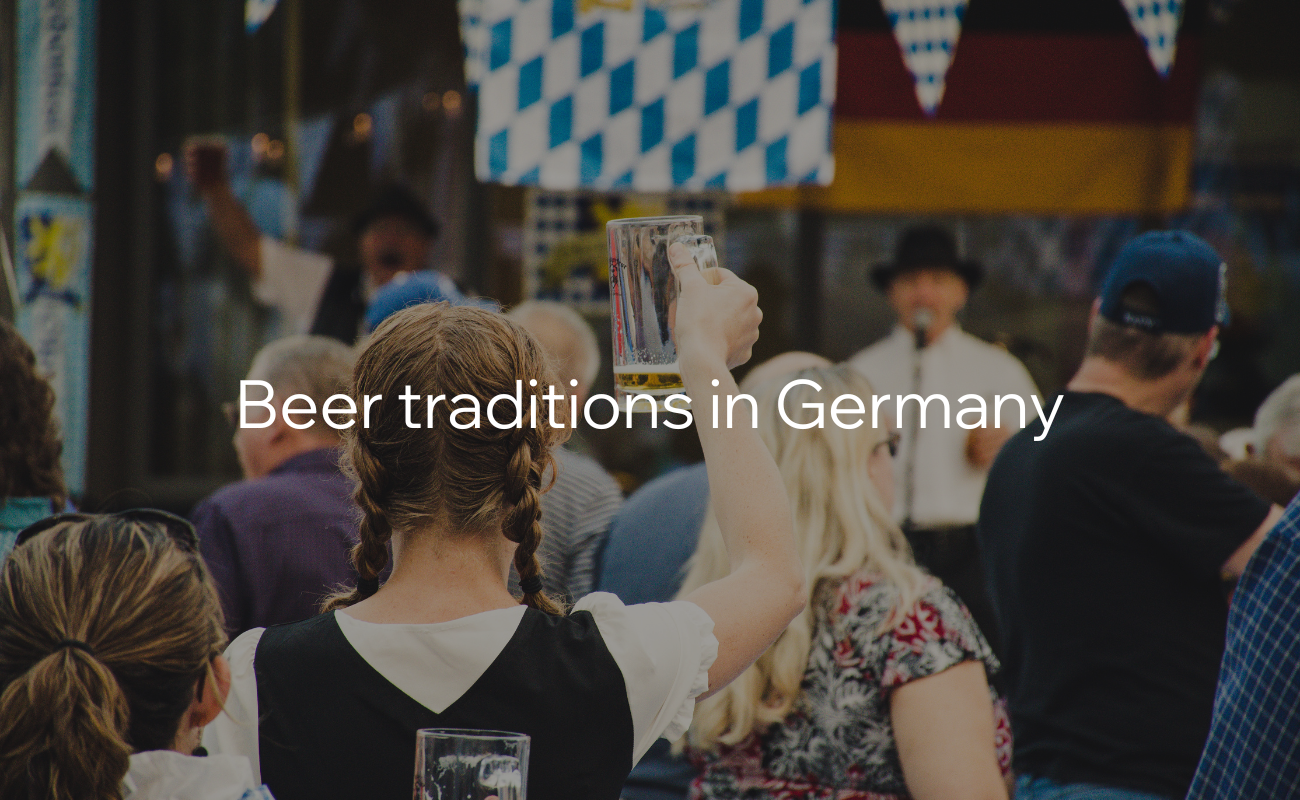
As we celebrated International Beer Day earlier this month, this is our first blog post of our series focusing on beer.
Beer has a rich history dating back to ancient civilizations like Mesopotamia and Egypt, where it was brewed from barley and wheat. As brewing techniques spread across Europe, beer evolved, taking on unique regional characteristics. Germany, in particular, emerged as a significant player in the beer world, with a rich brewing heritage that continues to influence the industry today.
First, Germany’s brewing history centers around the famed Beer Purity Law, or Reinheitsgebot, enacted in 1516 in Bavaria. This law regulated beer ingredients to ensure quality and safety, permitting only water, barley, and hops. Yeast was later added when its role in fermentation was understood. The Reinheitsgebot is one of the oldest food safety regulations globally and has significantly shaped German beer culture, ensuring a high standard that has earned German beers a stellar reputation worldwide.
Germany’s diverse regions each boast unique brewing traditions and beer styles:
Bavaria: Bavaria, known for its rich brewing heritage, is the birthplace of the Reinheitsgebot. Munich, the state capital, is famous for its Helles, Dunkel, and Weissbier. Iconic breweries like Augustiner, Paulaner, and Hofbräuhaus produce beers enjoyed worldwide.
Baden-Württemberg: This region, particularly known for Stuttgart’s Cannstatter Volksfest, showcases a variety of traditional beers. Stuttgart’s Dinkelacker brewery is renowned for its classic German lagers.
North Rhine-Westphalia: Home to the Altbier of Düsseldorf and the Kölsch of Cologne, this region has a vibrant brewing culture. Major breweries include Früh Kölsch and Uerige.
Lower Saxony: Known for Hannover’s Gilde Brewery, one of the oldest in Germany, producing beers that reflect the region’s unique brewing methods.
Hesse: Frankfurt’s Binding Brewery produces a wide range of beers, from Pilsners to wheat beers, reflecting the diverse tastes of the region.
Berlin: The capital city has a burgeoning craft beer scene. Breweries like Berliner Kindl and smaller craft brewers such as BRLO pushing the boundaries of traditional German beer styles.
Breweries in Germany have played a crucial role in shaping beer culture. In the Middle Ages, monasteries were the primary centers of beer production. Monks perfected brewing techniques and developed various beer styles. As brewing expanded beyond monasteries, local breweries emerged, each crafting unique beers reflecting regional tastes and ingredients. Today, Germany boasts over 1,500 breweries, producing thousands of beer varieties, from the crisp Pilsner of the north to the rich Dunkel of Bavaria.
Beer culture in Germany goes beyond a mere beverage preference; it is a cornerstone of social and cultural life. Beer gardens and halls, where locals and tourists gather to enjoy a pint, are integral to community life. Festivals like Oktoberfest in Munich celebrate this deep-seated beer culture, drawing millions of visitors worldwide. Stuttgart’s Cannstatter Volksfest, also called Wasen, is another significant event, attracting visitors with its rich traditions and variety of beers.
ProteinDistillery plays a part in this grand brewing tradition by upcycling brewer’s yeast into high-value protein products. Brewer’s yeast, a byproduct of beer production, is typically underutilized. Through our process, we enable brewers to maximize resource efficiency but also align with the growing demand for sustainable driven enterprises
Besides, this connection between traditional brewing and modern protein production highlights the ongoing evolution and relevance of the beer industry in Germany. As we celebrate International Beer Day this month, it’s fascinating to see how historical practices can be adapted and improved to meet contemporary needs.
Conclusion
Germany’s beer culture, deeply rooted in history and regional diversity, continues to thrive and evolve. From Bavaria’s stringent purity laws to the vibrant beer festivals across the country, each region adds to the rich tapestry of German brewing. Finally, modern innovations, like ProteinDistillery’s upcycling of brewer’s yeast, show that this tradition is preserved and adapted to meet contemporary sustainability demands. This month, we celebrate not only the heritage of German beer but also its bright, innovative future.
Sources
German National Tourist Board (2020). German Beer: a drinking tradition. Retrived on 6 August, 2024 from https://www.germany.travel/en/experience-enjoy/german-beer-a-drinking-tradition.html